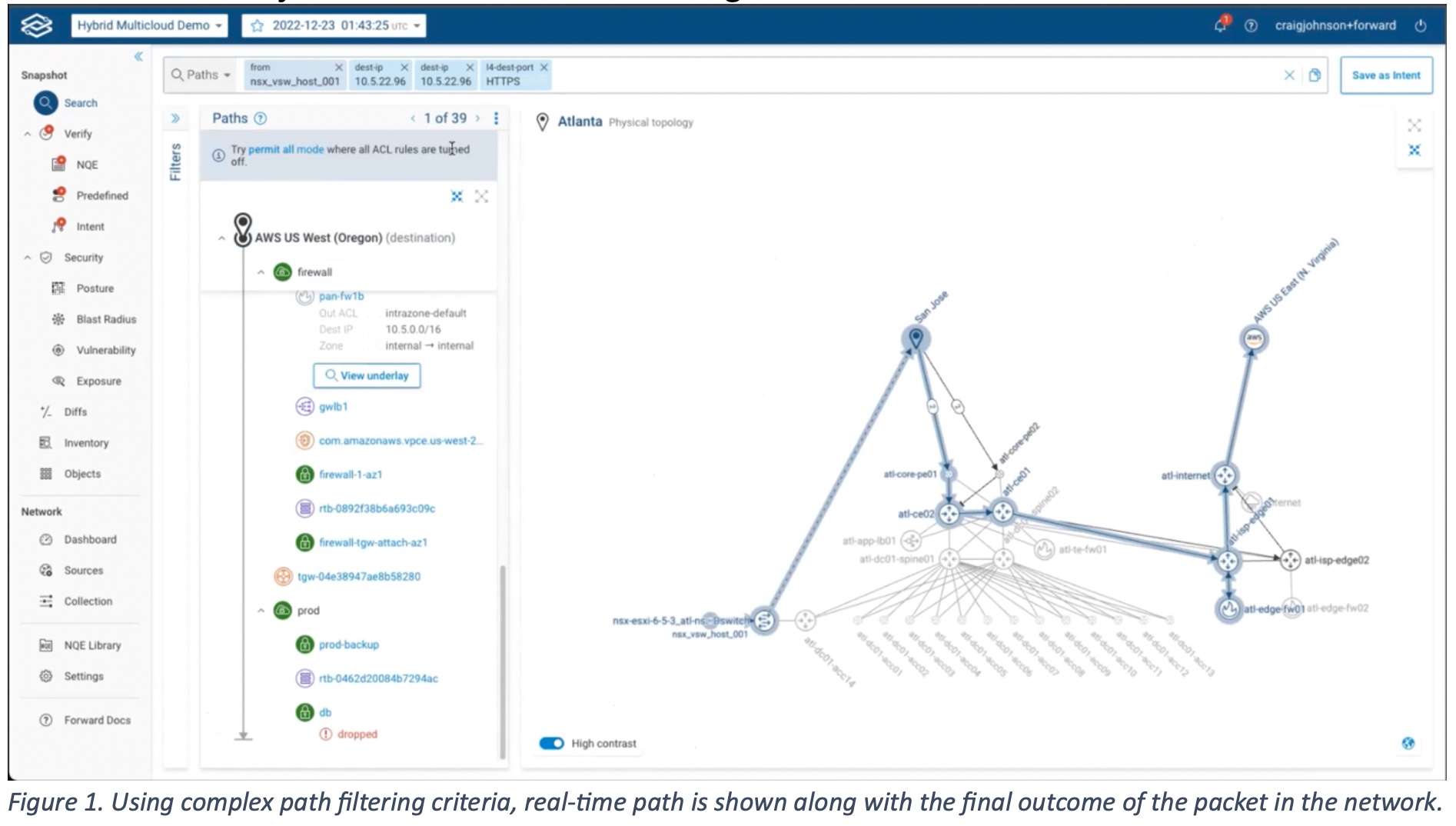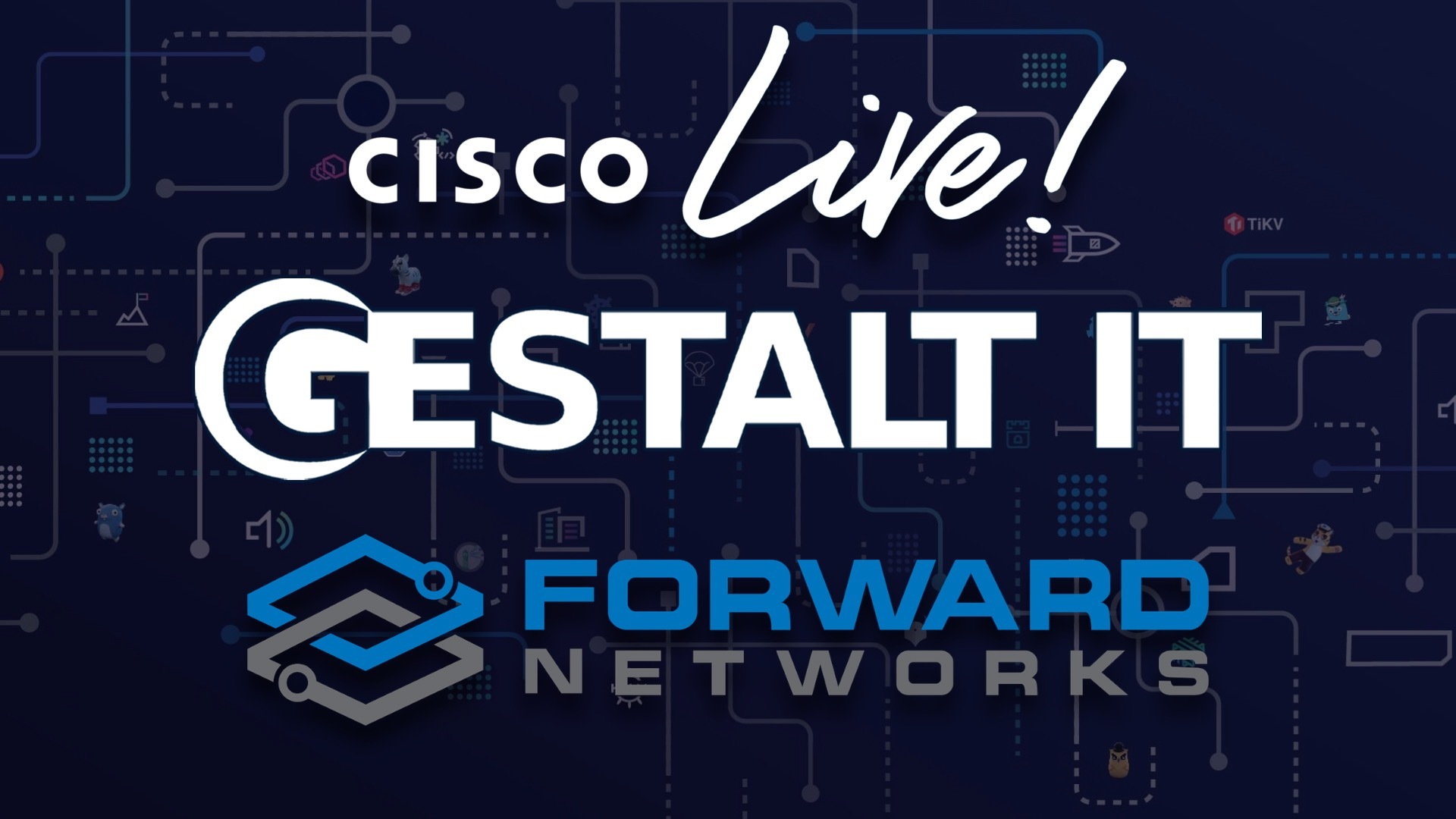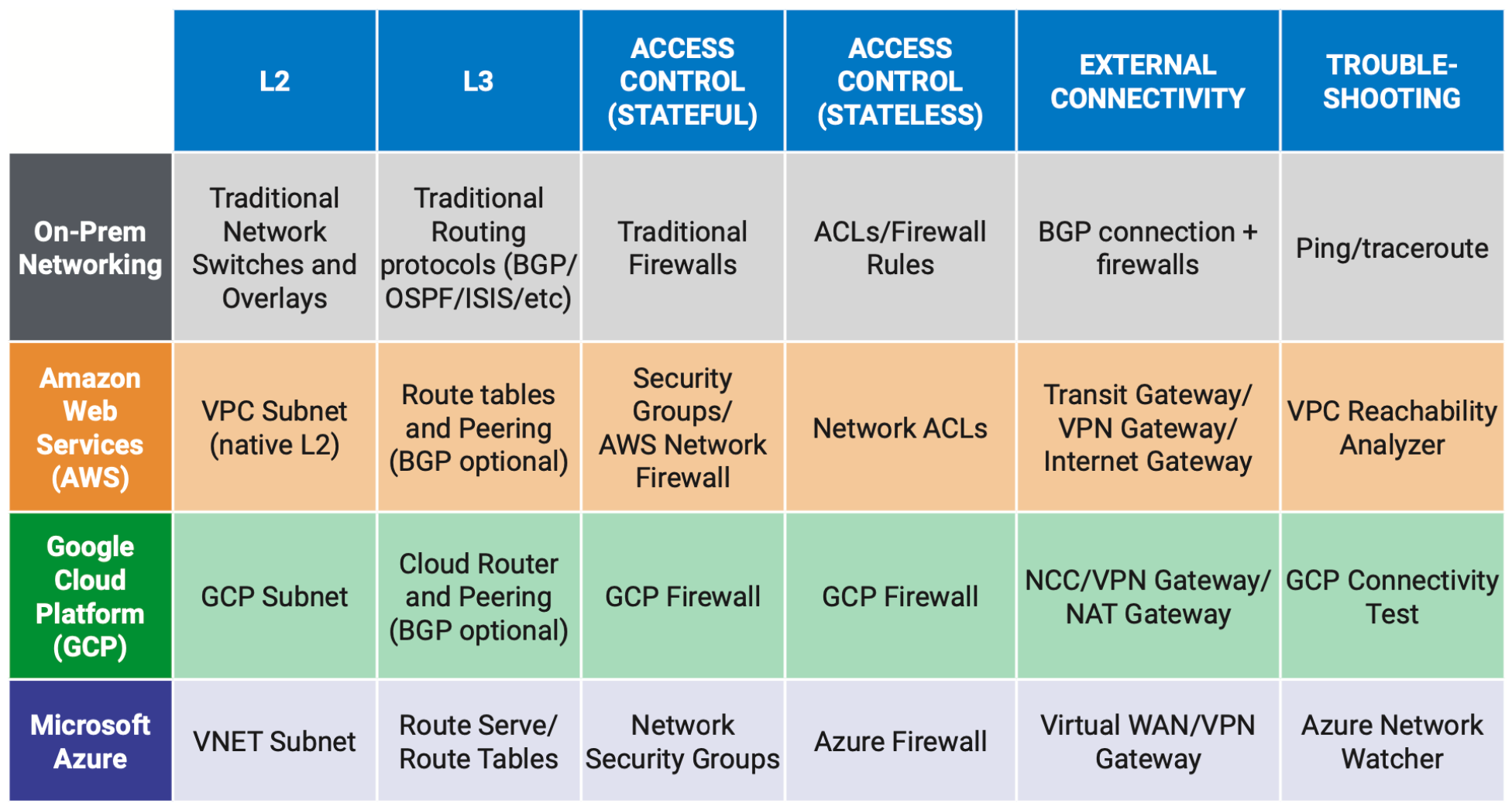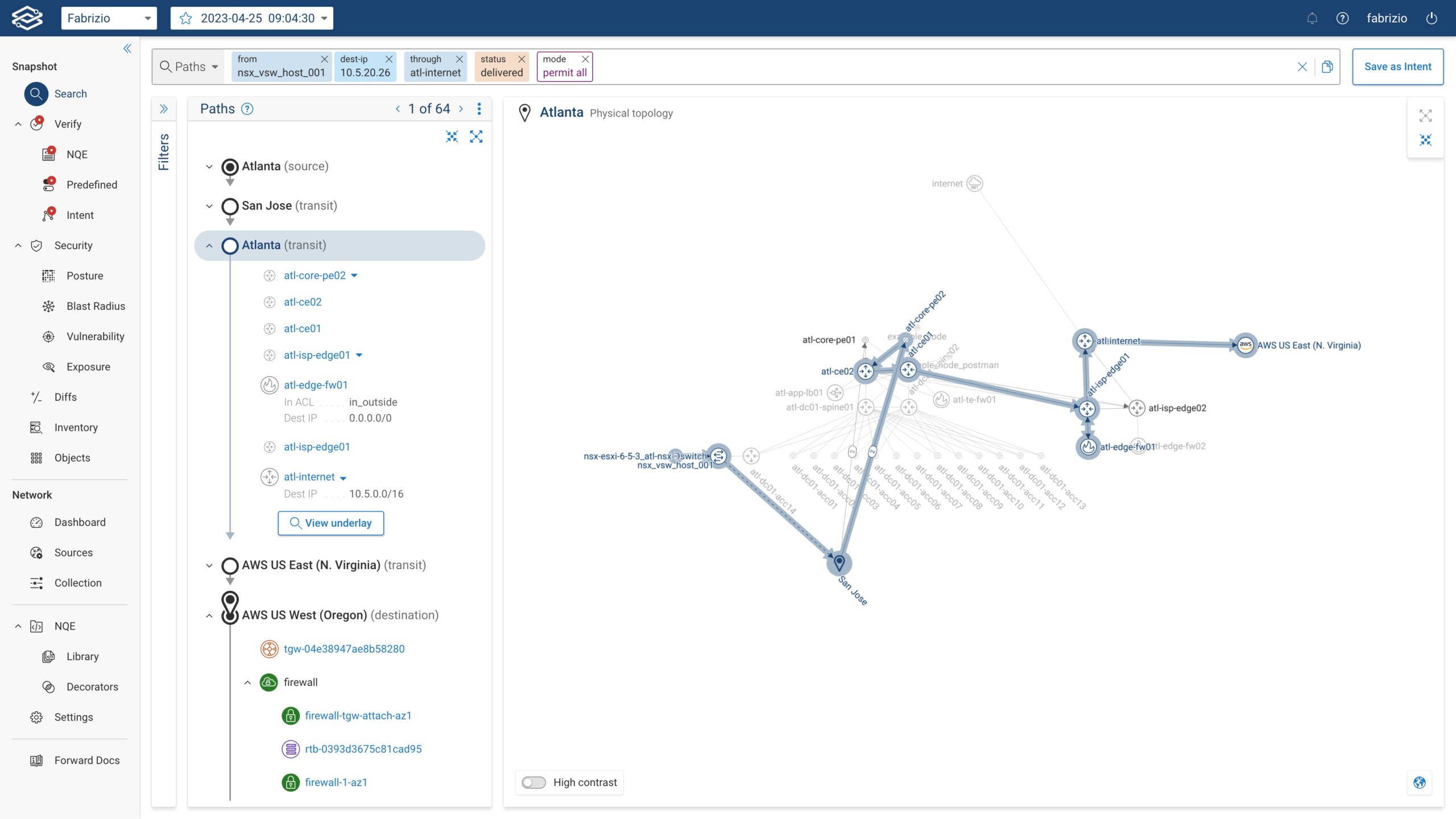I’m not quite sure how people that aren’t in IT go about their lives. People that work on a factory line make the same things day in and day out. People that teach classes go over the material and answer questions. Even people with a job that require a lot of unexpected action, like a firefighter for example, still have that action take place in a specific kind of area.
IT is one of the only disciplines I know of that revolves around trying to keep systems running while also realizing that any minute could launch you into a random troubleshooting task that could take hours or days to complete. It’s the strangest combination of maintenance and waiting for the next shoe to drop that I’ve ever experienced. How can you make it through your day knowing that you may be minutes away from everything getting turned upside down?

Moving Forward with Your Week
Earlier this year at Networking Field Day 22 we got a fun presentation from Forward Networks. Why was it fun? Because it was a week in the life of a network engineer. A real week. Why should this week stand out above any other presentations that we’ve seen before?
A typical “day in the life” or “week in the life” presentation is pretty scripted out to follow a project timeline. There’s a plan and a process and everything follows as it should. This prototypical week in the life is all based around something that needs to be configured or installed. No one ever interrupts the team doing the work. No one ever changes the script or modifies it based on budget or missed ship dates or anything that tends to come up. And what happens when the project is done?
Forward Networks showed what they think a typical week in the life of a network engineer looks like. And boy did they nail it! Here are some of the items that they think network engineers have to deal with:
This is what a real week for a network team looks like. It’s not installation projects and dealing with timelines. It’s random problems that crop up and need to be dealt with. A real week is trying to figure out how to plug a leak in your security structure while wondering if you’re going to get done in time to make it to a child’s recital. Weeks aren’t filled with projects. They’re filled with work that gets interrupted by other work or problems that crop up out of nowhere.
Where I think Forward Networks does the best job of helping you is with their platform serving as a source of truth for the network. Instead of wasting hours trying to figure out which devices in the network are affected by the bug in a field notice, you can instead query Forward Networks to find out what’s going on. You can query for any and all affected operating systems and start building a plan to patch them. Their Network Query Engine (NQE) can answer your troubleshooting questions as you think of them instead of forcing you to work out a list of info you need to have before you ever start solving the problem at hand.
It reminds me of the differences that I’ve seen in troubleshooting an issue completely blind versus having all the information. Often, we find ourselves jumping into something and needing to figure out what questions to ask. We see symptoms or behaviors but we don’t understand how to fix them. It’s not until we ask the right questions or uncover the right information that we can get everything resolved. This feels very much like the troubleshooting we do as junior admins or engineers.
On the other hand, once we know that we need to ask the right questions first we start getting those things answered before we really dive in. This is also usually the point in our career when we have a team that can help us by branching out to get answers to multiple things simultaneously. Now we’re more than just a single overworked junior engineer. We’re a team of motivated people looking for the quickest way to get the information we need to solve the problem.
For me, Forward Networks NQE is a part of that advanced team. It’s the resource we talk to in order to find the information we have to have to make the right decisions. It’s like a network encyclopedia. And any resource we have that can cut down on time to resolve problems or troubleshoot issues means we can spend less of our week working on unexpected issues and more time keeping things running smoothly so those issues don’t crop up.
Bringing It All Together
My typical week as a network engineer was best described as expecting the unexpected. No matter how much I planned there was always something that would crop up and force me to figure out what I needed to fix. With the help of Forward Networks you may not be able to completely eliminate these unexpected issues but you can absolutely use their NQE platform to reduce the time it takes to get them wrapped up.




